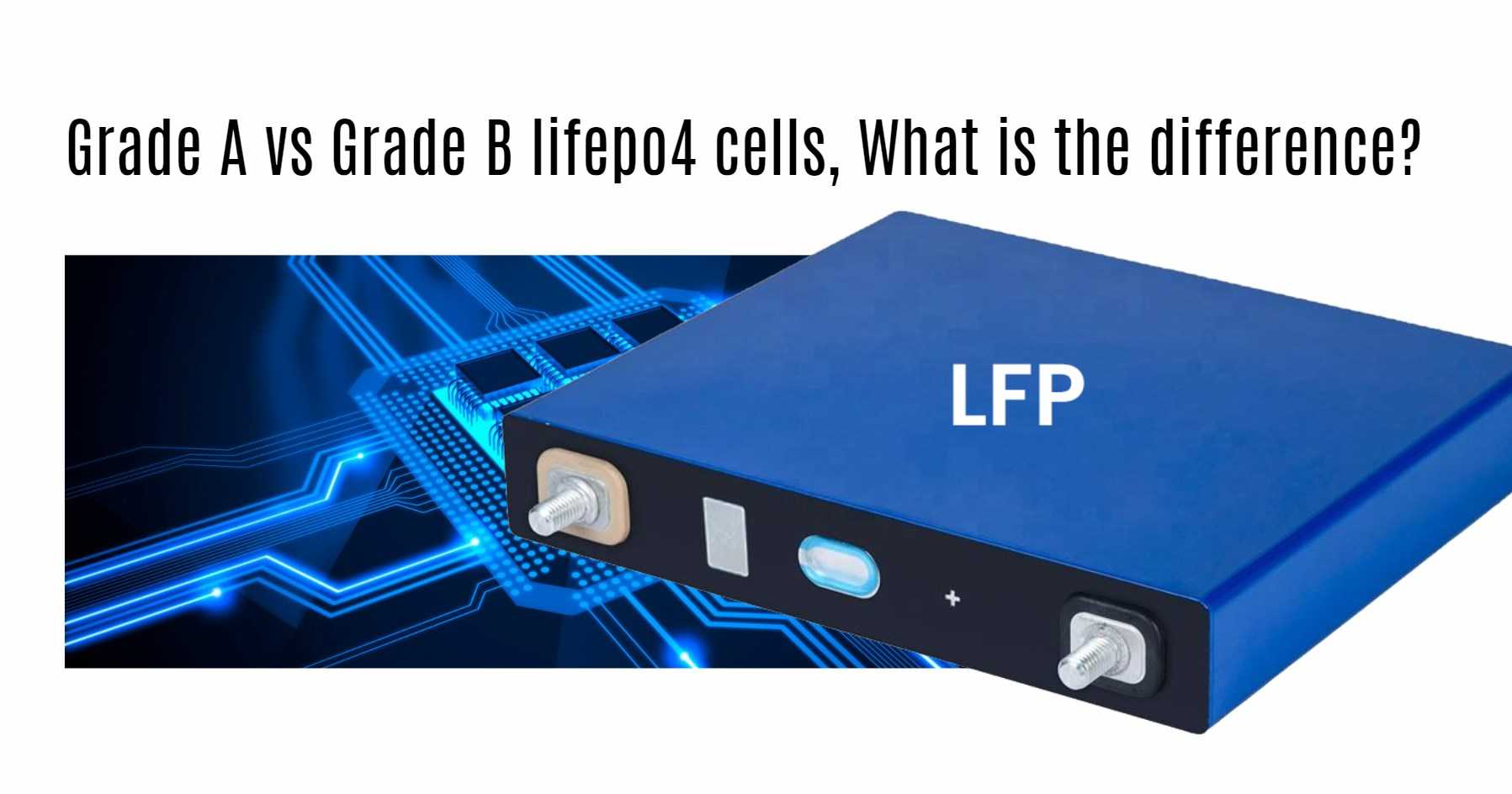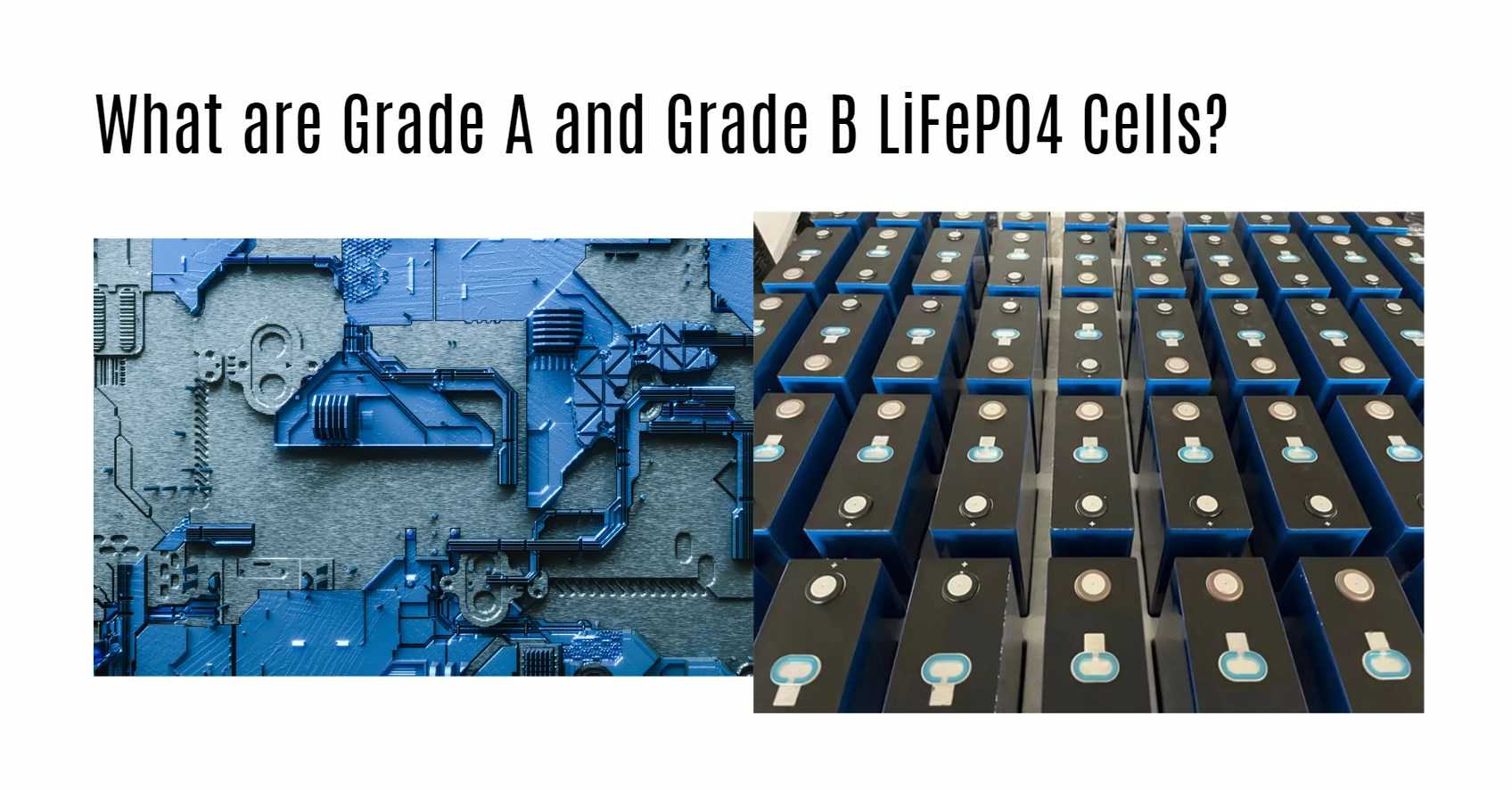Lithium iron phosphate (LiFePO4) batteries have become increasingly popular in recent years due to their high energy density, long cycle life, and safety features. However, not all LiFePO4 cells are created equal, and there can be significant differences in quality between different grades of cells. One important factor to consider when choosing LiFePO4 batteries is the grade of the cells, with Grade A and Grade B being the two most common grades available on the market. In this article, we will discuss the differences between Grade A and Grade B LiFePO4 cells, and the implications of these differences for battery performance and safety.
What are Grade A and Grade B LiFePO4 Cells?
Grade A and Grade B LiFePO4 cells are differentiated primarily by their manufacturing processes and the quality control measures used during production. Grade A cells are made using the highest quality materials and undergo the most rigorous testing and inspection procedures. They are typically more expensive than Grade B cells due to their superior quality, but they also offer higher performance and longer lifetimes.
In contrast, Grade B cells are made using slightly lower quality materials and undergo less stringent quality control measures during production. While they are still considered high-quality cells, they may be more prone to defects and failures than Grade A cells. As a result, they are generally less expensive than Grade A cells, but they may also have a shorter lifespan and lower performance.
Wholesale lithium golf cart batteries with 10-year life? Check here.
Differences in Performance and Safety
The primary difference between Grade A and Grade B LiFePO4 cells is their performance and safety characteristics. Grade A cells are typically more stable and reliable than Grade B cells, and they offer higher energy densities and longer cycle lives. They are also less likely to suffer from internal defects, such as dendrite formation or thermal runaway, which can lead to safety issues.
Want OEM lithium forklift batteries at wholesale prices? Check here.
In contrast, Grade B cells may be more prone to internal defects, and they may have a slightly lower energy density and shorter cycle life than Grade A cells. However, they are still considered high-quality cells, and they can be a cost-effective option for applications that do not require the highest level of performance or safety.
Choosing the Right LiFePO4 Cells for Your Application
When choosing LiFePO4 batteries for your application, it is important to consider the specific requirements of your system and the tradeoffs between performance, safety, and cost. If you require the highest level of performance and safety, Grade A cells may be the best option for you, even though they may be more expensive. However, if your application can tolerate slightly lower performance and safety standards, Grade B cells may be a more cost-effective choice.
It is also important to choose a reputable manufacturer that uses high-quality materials and manufacturing processes, regardless of whether you choose Grade A or Grade B cells. Redway, a custom LiFePO4 battery module manufacturer, is dedicated to providing high-quality, reliable batteries for a wide range of applications. With a focus on quality and safety, Redway offers Grade A and Grade B cells, as well as customized battery solutions tailored to meet the specific needs of your application.
Conclusion
In conclusion, the difference between Grade A and Grade B LiFePO4 cells lies primarily in their manufacturing processes and quality control measures. While Grade A cells are typically more expensive, they offer higher performance, longer lifetimes, and greater safety than Grade B cells. However, Grade B cells are still high-quality cells that can be a cost-effective option for applications that do not require the highest level of performance or safety. Regardless of the grade of cells you choose, it is important to choose a reputable manufacturer that uses high-quality materials and manufacturing processes to ensure the reliability and safety of your battery system.







